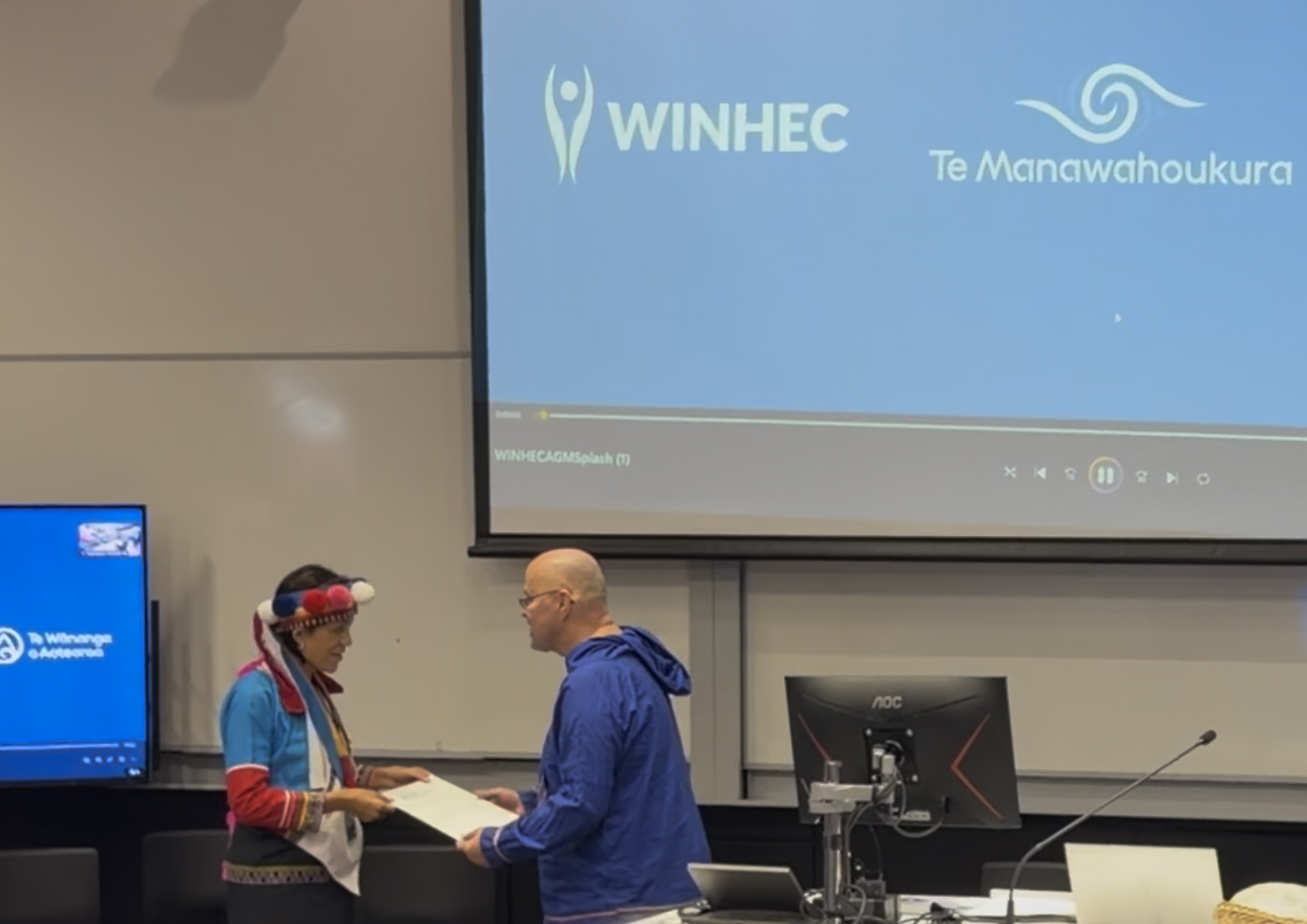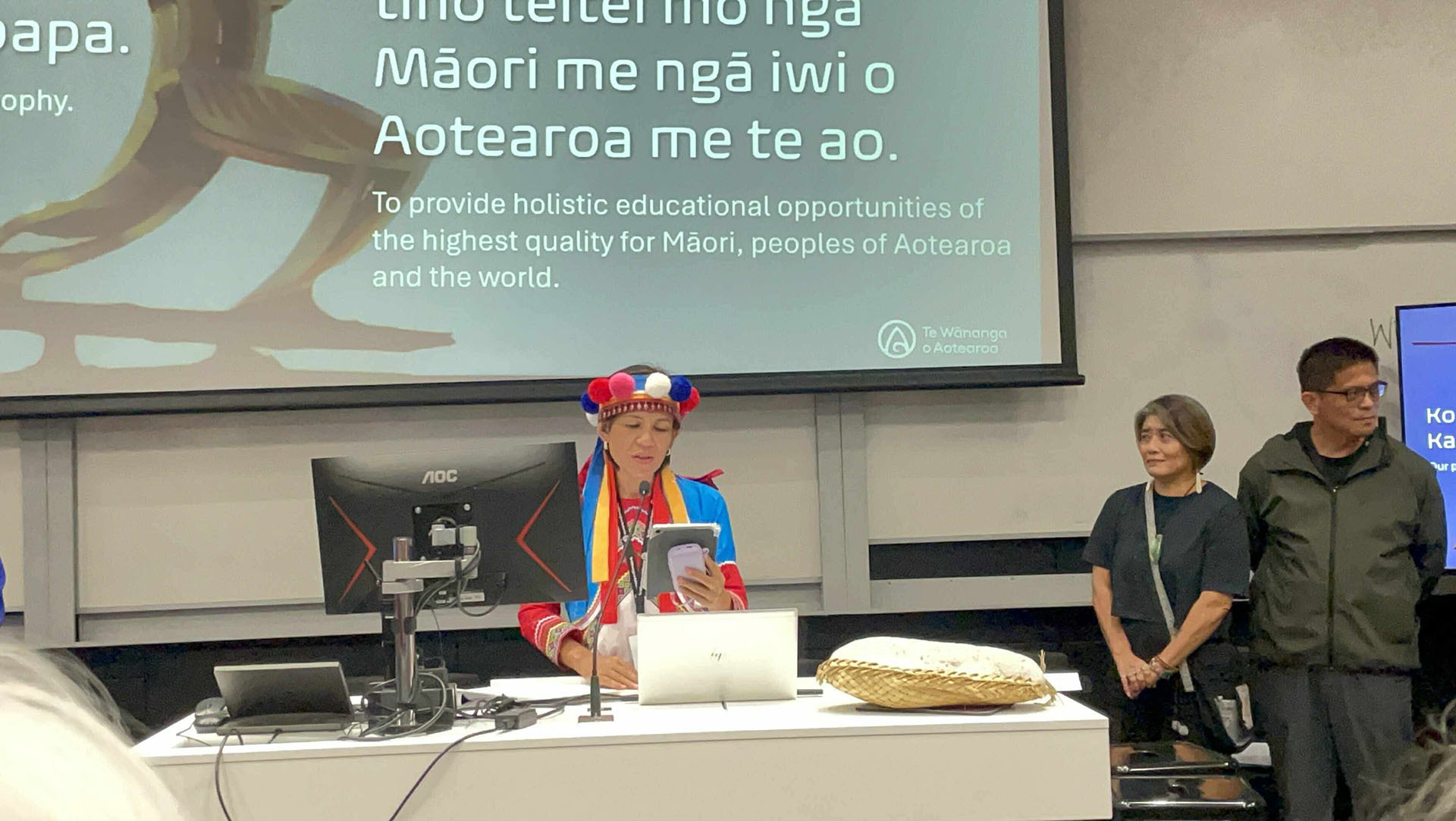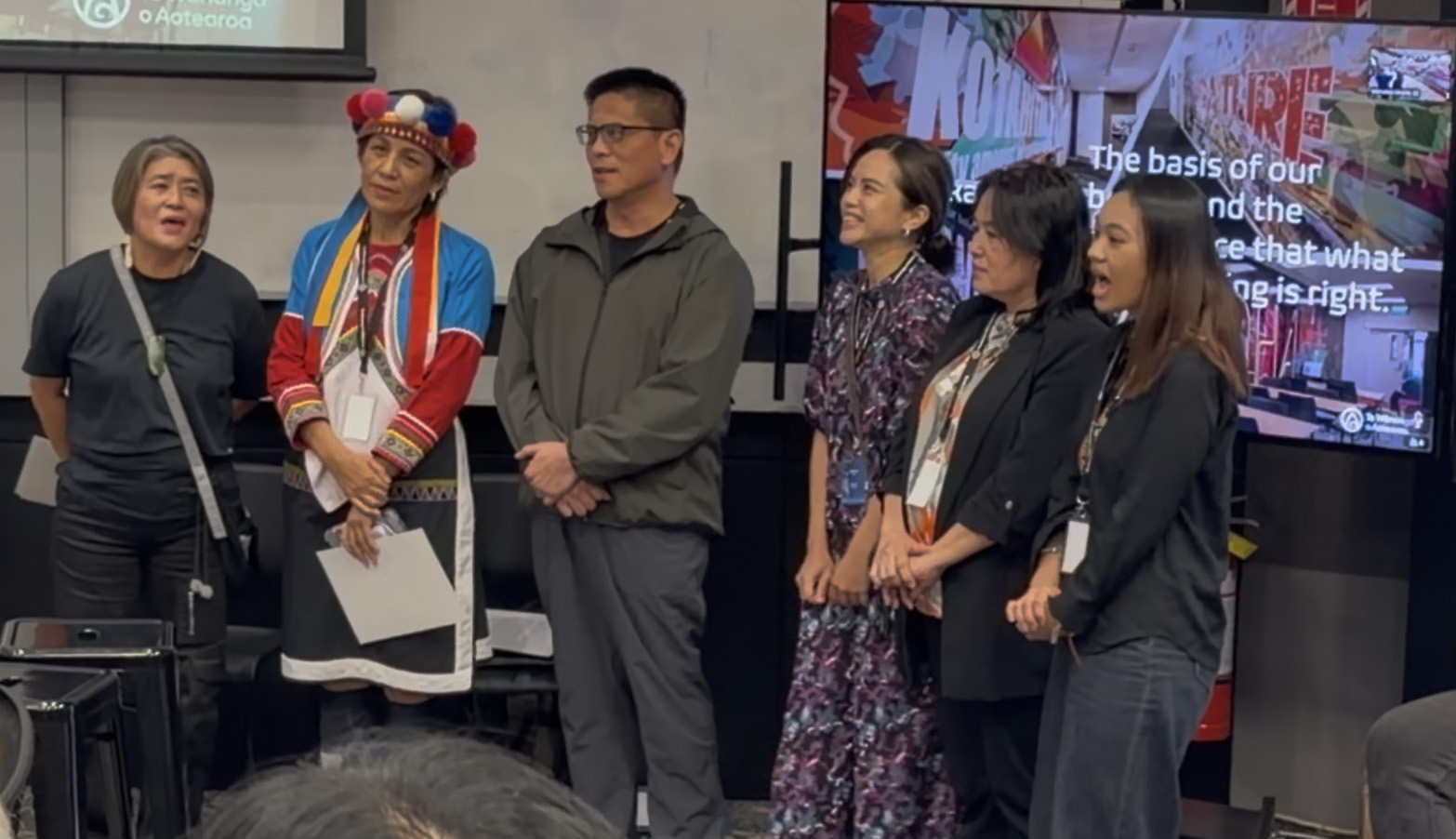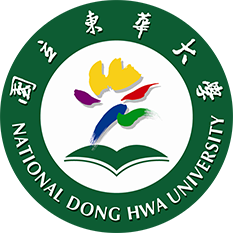Taiwanese Indigenous Leaders and Educators Win 2025 WINHEC Circle of Honours Awards

Several Indigenous representatives and educators from Taiwan have been recognized with the 2025 World Indigenous Higher Education Consortium (WINHEC) Circle of Honours Awards for their outstanding contributions to language revitalization, cultural transmission, and educational service. Following careful review and discussion by the committee, contributors from Canada, Aotearoa New Zealand, Australia, Sami Norway, Hawaiʻi, Alaska, and Taiwan were named recipients. The WINHEC Circle of Honours aims to affirm practitioners of ethnic affairs who are worthy of imitation and respect by Indigenous peoples worldwide, thereby demonstrating Indigenous educational sovereignty.
In this year's awards, three elders from different nations received the "Elders of Indigenous Wisdom" category, recognizing their lifelong commitment to transmitting traditional knowledge and cultural revitalization. The recipients are Amalanamahlʉ Salapuana (La’alua Nation), Lowsi Rakaw (Truku Nation), and Mo’o E’ucna (Tsou Nation).
Mr. Amalanamahlʉ Salapuana 游仁貴 (拉阿魯哇族 / La’alua Nation) was honored in recognition of his lifelong dedication to Indigenous language revitalization, cultural restoration, and intergenerational knowledge transmission for the La’alua people of Taiwan. Starting in the 1990s, he partnered with scholars and educators to develop modern teaching materials, write dictionaries, and establish the phonetic and orthographic standardization system for the La’alua language. His involvement in the compilation of the La’alua Language Learning Handbook and teacher training programs laid the foundation for La’alua to enter formal school and community-based education. Because of his profound knowledge and decades of service, he is widely regarded as the "father of modern La’alua language". Furthermore, he led community efforts to revive the sacred Miatungusu (聖貝祭), the most important La’alua ceremony, which had been interrupted for decades due to colonization and assimilation policies. Through his guidance, spiritual practices, oral traditions, ritual knowledge, and the symbolic meanings, such as the sacred status of seashells, were restored to community life and transmitted to the next generation, thus achieving cultural reconstruction. He also played a key role as a senior advocate and cultural representative in the historic ethnic recognition movement that led to the official acknowledgement of the La’alua people as Taiwan’s 15th Indigenous nation on June 26, 2014. Today, he serves as a cultural ambassador and advisor, collaborating with academic institutions and public agencies, demonstrating the renewed confidence and visibility of La’alua identity through participation in national cultural events.
The second elder, Mr. Lowsi Rakaw 黃長興 (Truku Nation), is a Truku hunter and a retired military instructor from Hualien. He was awarded for his exemplary dedication as an Indigenous knowledge-keeper and scholar. His major achievements include his lifelong commitment to the extensive documentation and investigation of Truku traditional territories, having personally visited over 160 ancestral village sites. He led community efforts to record ancestral migration routes, historic places, and oral histories. In 2024, he published the landmark book titled 《我們從哪裡來–崛起於東台灣的太魯閣族人》 (Where We Came From – The Rise of the Truku People in Eastern Taiwan), which consolidates decades of historical materials and serves as a critical resource for educating future generations about Truku history. Even into his seventies, he continued this rigorous work, leading community expeditions between 2004 and 2014 to rediscover and verify over 300 historic settlement sites. His research also includes the Truku anti-colonial campaigns, and he is currently preparing a new volume dedicated to Indigenous hunting practices, land stewardship, and intergenerational knowledge transmission.
The third recipient is Mr. Mo’o E’ucna 摩奧。悟吉納 (Tsou Nation), from the Saviki (山美) Tribal Community in Chiayi County Alisan Township. He was recognized for his distinguished contributions to Indigenous language revitalization, community leadership, and culturally grounded education. After retiring from the police service, he returned home, becoming the leader of the Saviki tribal Community Learning Classroom. He established a community-based educational environment where the Tsou language, oral traditions, and ancestral values are actively transmitted to younger generations. As a respected Indigenous language teacher, his teaching philosophy goes beyond literacy, incorporating storytelling, traditional knowledge, environmental ethics, and cultural protocols into language instruction, demonstrating innovative pedagogical thought and practice. At the national level, he made a historic contribution by serving as the first Chairperson of the Indigenous Languages Research and Development Foundation (established under Taiwan’s Indigenous Language Act requirement), where he helped advance national policies and capacity-building programs, strengthening language preservation efforts across multiple communities.
In the "Service to Indigenous Education" category, two candidates were awarded for their service contributions to Indigenous education and cultural documentation. The recipients were Ms. Paicʉ Usaiyana (Tsou Nation) and Dr. YU Kan-ping.

Ms. Paicx Ueaiyana 白紫 舞賽亞納 (Tsou Nation), an educator and language activist from the Mamahavana Tribal Community in Nantou County, is currently a PhD candidate in education. She was recognized for her significant and sustained contributions to Indigenous education and language revitalization. She emphasizes the core role of mother-tongue education for identity, culture, and inter-generational continuity. Her philosophy, "Without language, who are you?," resonated deeply with youth and the community. Furthermore, she links the education system by initiating and coordinating culture-and-language programs in her community and advocating for Indigenous language courses in schools in city areas, thereby bridging the gap between formal education and Indigenous knowledge systems. Through her work, she has raised broad public awareness of the importance of Indigenous languages in Taiwan’s multilingual society, becoming an advocate for ethnic mainstreaming and universal Indigenous education.
The other recipient is Dr. YU Kan-ping 虞戡平, a distinguished documentary filmmaker, visual anthropologist, and educator. He is currently an honorary doctor and visiting professor at National Dong Hwa University. Although he is of Non-Indigenous Nation, his contributions and commitment are respected and accepted by several Indigenous Nations in Taiwan. He received the First Class Medal of the Indigenous Peoples’ Affairs Council, Taiwan’s highest honor for contributions to Indigenous culture and education, in recognition of his lifelong dedication. He has conducted fieldwork and audiovisual documentation for over forty years, accumulating over 3,000 reels of footage documenting Taiwanese Indigenous rituals, music, dance, and daily life, which have become invaluable educational resources for schools, universities, and communities. His work includes the “Taiwan Indigenous Music & Dance Series” and numerous documentary films, elevating Indigenous cultural practices into national consciousness and integrating them into educational curricula, thus achieving the coexistence of documentation and factual record. Importantly, he mentors emerging Indigenous educators and filmmakers, fostering a new generation of knowledge-bearers, making him an exemplary model for intergenerational continuity.
All nominees from Taiwan received strong recommendations from the WINHEC Circle of Honours. The nomination committee stated that the demonstration of Indigenous educational sovereignty is achieved by recognizing practitioners who are worthy of imitation and respect by Indigenous peoples worldwide. At the awards ceremony, only Ms. Paicʉ Usaiyana received the award in person; the other awards were accepted by members of the Taiwan team. Professor Bavaragh Dagalomai (Jolan HSIEH), a longtime participant of WINHEC and a former recipient of the Indigenous Leadership Award, remarked that the awardees are the best transmitters of education for promoting ethnic affairs. She noted that recognizing their contributions through the international Indigenous organization honors them and provides a mutual learning model for nations. Professor Hsieh also expressed hope to hold a separate public award ceremony for this year's Taiwanese recipients upon their return.



